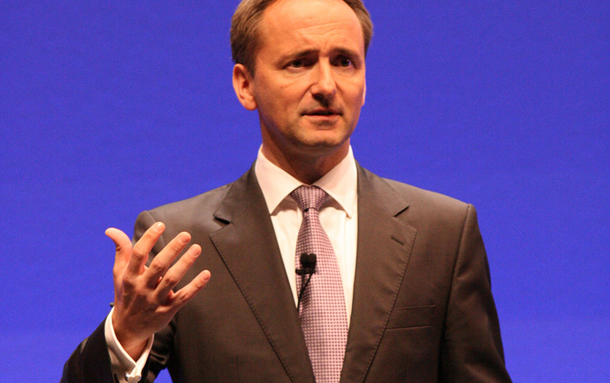SAP eyes Facebook and Apple for secrets of success

Business ByDesign gets app happy...

SAP chief Jim Hagemann Snabe described the software giant's new Sales OnDemand app as "Facebook for the enterprise"
Photo: Gregor Wolf
Software giant SAP is staking the success of plans to almost double revenue by 2015 on its software-as-a-service ERP platform, Business ByDesign.
Speaking at the CeBIT technology conference in Germany, SAP co-chairman Jim Hagemann Snabe said SAP wanted to grow its annual revenue from €12.5bn today to €20bn in 2015, predicting that a "substantial" portion of that new money will be generated by Business ByDesign.
Snabe forecast double-digit growth for the service, which has more than 250 small and medium-sized businesses as customers.
Users of Business ByDesign will soon be able to choose from a variety of apps tailored to the needs of specific departments or industries.
These apps will be built by SAP and partner companies using the software development kit for Business ByDesign, which was rolled out in February. The first of these new applications is SAP Sales OnDemand, which was developed inhouse.
Snabe described Sales OnDemand as "Facebook for the enterprise" and said it was about providing a simplified experience, citing Apple as an inspiration.
"We do not have to build in more and more but rather to simplify. We saw this with Apple... who managed to change an entire industry - and that is what we want to do," he said.
The company will also start selling the Business ByDesign service, which can be integrated with SAP's on-premise Business Suite software, to subsidiaries of large companies, alongside smaller firms.
It will give a boost to the Business ByDesign platform, which failed to hit SAP's original target of 10,000 customers and $1bn of revenue by 2010.
Snabe said SAP will not abandon its commitment to selling on-premise software like SAP Business Suite, predicting that business will rely on a hybrid model of cloud and on-premise software delivery for the next 10 to 20 years.
Alongside this hybrid approach, Snabe said SAP will focus on supporting mobile devices - with Sales OnDemand designed to work on BlackBerrys, iPhones and the Apple iPad.
"Within three to four years, 80 per cent of usage of business applications will be on mobile devices," Snabe said, adding: "I have a tablet and I rarely use a PC myself today."
The company's third focus will be on promoting and developing its in-memory technology, which allows its software to read data direct from memory rather than retrieving it from a hard disc first.
Snabe said the technology will allow data to be read rapidly and will pave the way for "new applications to be built".
CeBIT delegates heard that 80 per cent of SAP customers globally had chosen to adopt its more expensive Enterprise Support plan, which had proven unpopular with customers in the past.
In a tone that contrasted with the more muted statements from the company during its troubles that culminated with the resignation of Leo Apotheker as CEO in February 2010, Snabe predicted: "With our hybrid approach [matching business demand], SAP will be a success."